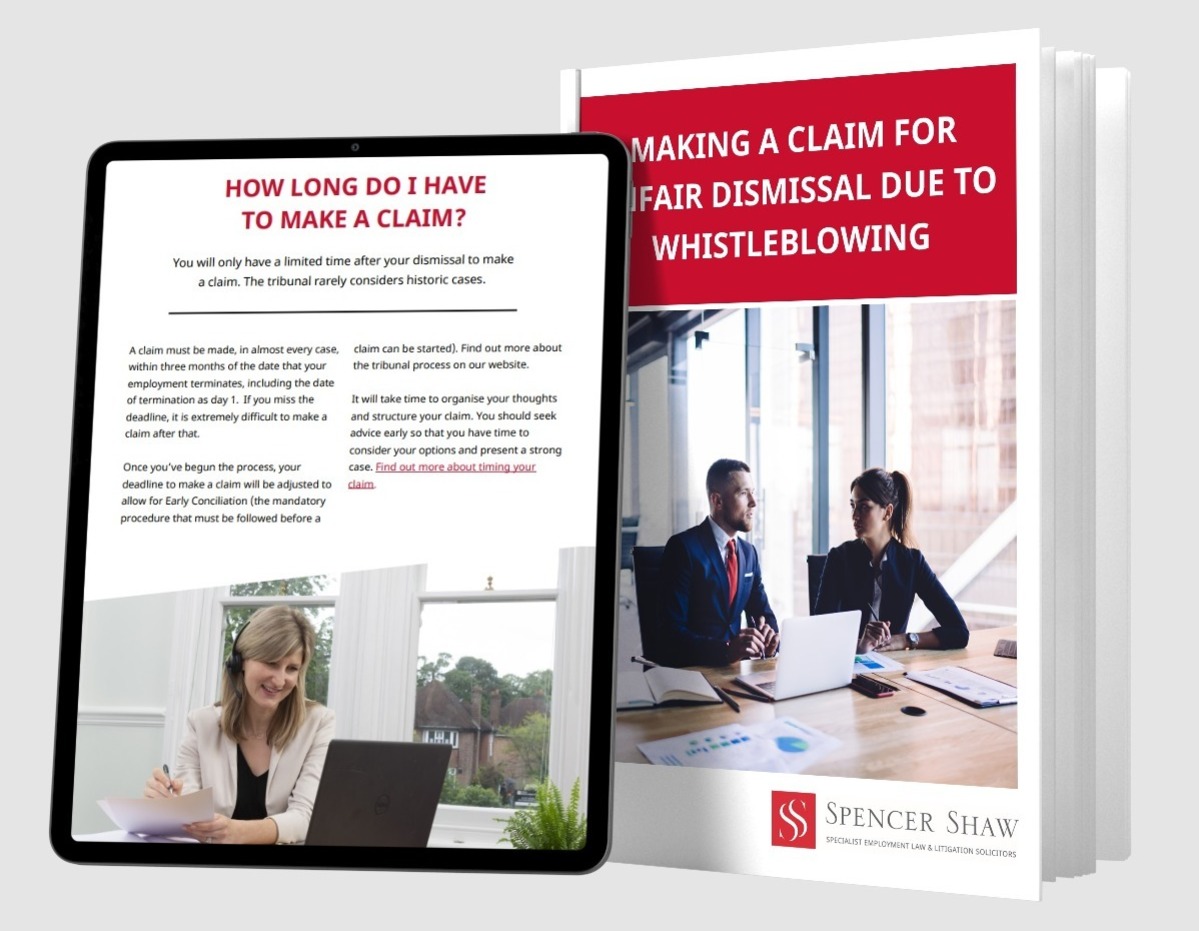Can my employer dismiss me for whistleblowing?
Posted on 13th January 2022 at 13:53
If you’ve been dismissed because of whistleblowing, your dismissal may have been unfair. The Public Interest Disclosure Act 1998 protects whistleblowers from retaliation by their employer.
Am I a whistleblower?
The Public Interest Disclosure Act 1998 protects employees and workers, as well as some additional groups not usually included as ‘workers’. To be protected you will need to show that you made a protected disclosure, following the correct procedure, and were dismissed because of this.
A disclosure will be protected if it is in the public interest and concerns:
• a criminal offence
• a breach of legal obligation
• a miscarriage of justice
• a danger to the health and safety of any individual
• damage to the environment
• a deliberate attempt to cover up any of the above.
What is in the public interest regarding whistleblowing?
All cases vary, so it is difficult to apply hard and fast rules. If your case goes before a tribunal, the judge or panel will consider:
• whether the concern affects other people, or just you
• how serious and widespread the impact of the wrongdoing is
• the seniority or influence of the person or organisation responsible
Although you must have had a reasonable belief that the disclosure was in the public interest, this does not need to be the main or only reason for raising the concern.
What is the correct whistleblowing procedure?
If you adhered to your employer’s policy, it will be difficult for your organisation to argue that you did not follow the correct procedure. You are also likely be protected if you have reported the concern to a prescribed person or body (who this is will depend on what the disclosure concerns).
If you reported the concern externally to somebody other than the proscribed person, you may find it more difficult to show that you are covered by the Public Interest Disclosures Act. It will help if you can show that you had a good reason to make the report externally, and that you were not making the disclosure for personal gain.
Can I become a whistleblower if I have a non-disclosure agreement (NDA)?
Your employer cannot legally enforce a confidentiality clause that attempts to overrule whistleblowing legislation, even if you signed the agreement. However, if your disclosure does not benefit from whistleblowing protection your employer will be able to enforce the agreement, and you may face consequences of breaking it. You should seek legal advice to be sure of your rights. Discussions with a solicitor are legally privileged, and so you will not face repercussions for sharing relevant information with a solicitor.
What can I do?
Download our guide to find out more about your rights if you have been dismissed for making a disclosure. Just enter your details in the form, and you will be directed to a link to download a PDF.
Whistleblowing is a complex area of law, and the nature of your disclosure may make it more difficult. An experienced employment law solicitor can help you to understand how the law applies to your personal circumstances and what your rights are.
Get in touch for advice.
Not sure if you have a claim? Download our free guide

We will never share your details without your permission
Share this post:










